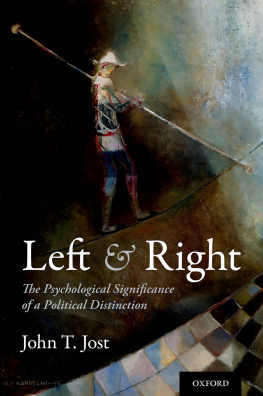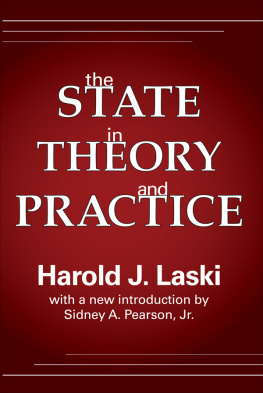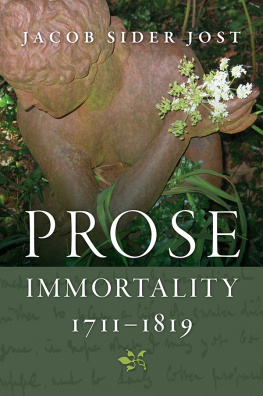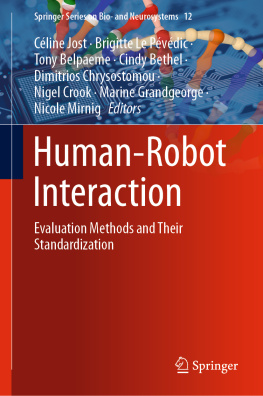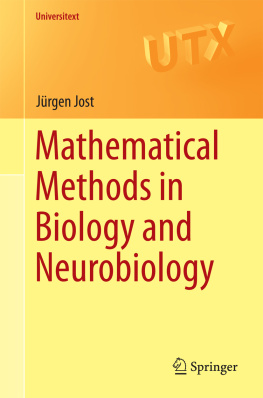John T. Jost - Left and Right The Psychological Significance of a Political Distinction
Here you can read online John T. Jost - Left and Right The Psychological Significance of a Political Distinction full text of the book (entire story) in english for free. Download pdf and epub, get meaning, cover and reviews about this ebook. year: 2021, publisher: Oxford University Press, genre: Politics. Description of the work, (preface) as well as reviews are available. Best literature library LitArk.com created for fans of good reading and offers a wide selection of genres:
Romance novel
Science fiction
Adventure
Detective
Science
History
Home and family
Prose
Art
Politics
Computer
Non-fiction
Religion
Business
Children
Humor
Choose a favorite category and find really read worthwhile books. Enjoy immersion in the world of imagination, feel the emotions of the characters or learn something new for yourself, make an fascinating discovery.
- Book:Left and Right The Psychological Significance of a Political Distinction
- Author:
- Publisher:Oxford University Press
- Genre:
- Year:2021
- Rating:3 / 5
- Favourites:Add to favourites
- Your mark:
- 60
- 1
- 2
- 3
- 4
- 5
Left and Right The Psychological Significance of a Political Distinction: summary, description and annotation
We offer to read an annotation, description, summary or preface (depends on what the author of the book "Left and Right The Psychological Significance of a Political Distinction" wrote himself). If you haven't found the necessary information about the book — write in the comments, we will try to find it.
John T. Jost: author's other books
Who wrote Left and Right The Psychological Significance of a Political Distinction? Find out the surname, the name of the author of the book and a list of all author's works by series.
Left and Right The Psychological Significance of a Political Distinction — read online for free the complete book (whole text) full work
Below is the text of the book, divided by pages. System saving the place of the last page read, allows you to conveniently read the book "Left and Right The Psychological Significance of a Political Distinction" online for free, without having to search again every time where you left off. Put a bookmark, and you can go to the page where you finished reading at any time.
Font size:
Interval:
Bookmark:


Oxford University Press is a department of the University of Oxford. It furthers the Universitys objective of excellence in research, scholarship, and education by publishing worldwide. Oxford is a registered trade mark of Oxford University Press in the UK and certain other countries.
Published in the United States of America by Oxford University Press
198 Madison Avenue, New York, NY 10016, United States of America.
Oxford University Press 2021
All rights reserved. No part of this publication may be reproduced, stored in a retrieval system, or transmitted, in any form or by any means, without the prior permission in writing of Oxford University Press, or as expressly permitted by law, by license, or under terms agreed with the appropriate reproduction rights organization. Inquiries concerning reproduction outside the scope of the above should be sent to the Rights Department, Oxford University Press, at the address above.
You must not circulate this work in any other form and you must impose this same condition on any acquirer.
CIP data is on file at the Library of Congress
ISBN 9780190858339
eISBN 9780190858353
This book is dedicated to those doctoral students who believed in my ideas even when it felt as if no one else did, especially:
Aaron C. Kay
Cristina Mosso
Hulda Thorisdottir
Jaime L. Napier
Jojanneke van der Toorn
Virginie Bonnot
Cheryl Wakslak
Alison Ledgerwood
Ido Liviatan
Avital Mentovich
Maria Giuseppina Pacilli
Aleksandra Cichocka
Erin P. Hennes
H. Hannah Nam
Nevin Solak
Chadly Stern
Joanna Sterling
Flvio Azevedo
Melanie Langer
Vivienne (V.) Badaan
Shahrzad Goudarzi
Eduardo J. Rivera Pichardo
Usman Liaquat
My earliest memories of an ideological nature were sitting on my fathers shoulders, shouting Power to the People at a presidential campaign rally for George McGovern and Sargent Shriver in 1972. It was a chant I soon shared, in modified form, back in the attic with my stuffed animals: Power to the Animals! Those were the days of President Nixon and the Watergate scandal, which cast a pall over everything in American life. A year or two later, my preschool teachers scuttled our class to the local office of the Environmental Protection Agency, where we lined up with hundreds of other kids to shake President Gerald Fords hand. At dinner that night my parents asked me what the experience was like. I regaled them with a single line: He smiled a crooked smile. In retrospect, I realize that all of that was probably Nixons fault (Fords awkward smile and my skeptical assessment of it).
Growing up in Cincinnati in the 1970s and 1980s was, politically speaking, very normal and at the same time rather strange. The surrounding area was extremely conservative; the county prosecutor/sheriff was always shutting down art exhibitionslike that of Robert Mapplethorpein the most dramatic, pious fashion, and my house was only 10 minutes from the red state of Kentucky. The Ohio suburbs housed wealthy private schools (one of which I attended, for a time), vast country clubs, and golf coursesand what seemed like a never-ending supply of spoiled rich kids in polo shirts tooling around recklessly in their parents BMWs. As far as I can tell, Cincinnati was one of the first cities in the U.S. to name a public venue after Ronald Reagan (a highway, as it turned out).
Within the narrow limits of the city itself, however, things were quite different. The downtown area, called Over-the-Rhine, was extremely poor at the time and only African Americans lived there. (This has changed since then.) I grew up in Clifton, a liberal, semi-artsy enclave near the University of Cincinnati, only a mile or two from Over-the-Rhine. I graduated from Walnut Hills High School, and the fathers of two of my closest friends were liberal Democrats who were both elected mayor of Cincinnati: Tom Brush and David Mann, who also served in the US Congress. A third, Jerry Springer, once held a neighborhood fundraiser in my familys living room.
Thanks to social media, I stay in touch with many people from my hometown, and the overwhelming majority (especially those who moved away) are quite progressive now, but a few are rabid right-wingers. More often than not, one can find us online fanning the flames of ideological conflict, especially during the 2020 presidential campaign. Very little good comes of it, of course. At least we can agree on Skyline Chili and the Cincinnati Reds, although both present gastrointestinal challenges.
I attended Duke University in the 1980s, where the most visible dominant majoritytossing Frisbees on grassy quads with beers invariably in their other handswere fraternity brothers and sorority sisters, old money Southern conservatives and wannabe capitalists from the Northeast. I tried, largely in vain, to make friends there, but over time I gravitated toward the subterranean group of progressive activists inspired by a late philosophy professor named Rick Roderick. (His lectures are available on YouTube.) Together we marched for unions and economic justice, against South African Apartheid and the proliferation of homelessness in the United States and the problem of sexual assault on campus, and to increase the racial diversity of the faculty. The Frisbee crowd thought we were ridiculously self-righteous, and we thought they were selfish and entitled.
One of the most profound intellectual influences on me at Duke was a professor of personality and clinical psychology named Irving Alexander. He introduced me to the work of Silvan Tomkins, including then-unpublished manuscripts, on the left-right dimension as a basic dimension of human personality. Tomkins had been Alexanders mentor, and the two remained the best of friends. When, a few years later, Alexander (1995: 105) wrote a section introduction for a compilation of Tomkinss writings, he noted that Tomkins preferred the left, was plagued by the right, and struggled with the incompatibility endlessly. Already, by age 21, I could relate.
For Tomkins (1987: 173), the left-right conflict was a fundamental, age-old one that is a sublimated derivative of social stratification and exploitation. This is because social systems based on stratification and exploitationas most societies throughout human history have beenalways have both defenders and challengers. According to Tomkins, normative, right-wing ideologies are defensive ideologies [that] vary as a function of the nature of the society they defend and place the blame for [problems in society] squarely upon those who suffer and complain, like the welfare cheats who are to blame for their own problems (176). By contrast, humanistic, left-wing ideologies place the blame for the problematic on the established normative authority, which must then change itself or be changed by those who suffer (177). Left-right differences, from this perspective, may be understood in part as divergent motives to maintain and justify (vs. challenge and improve upon) the societal status quo (Jost, 2020).
For graduate school in social psychology I chose Yale University and was very fortunate to have had that choice. Almost all of the doctoral students I knew there were liberal-lefties, and I learned a ton from them. We supported the cafeteria workers and secretaries and physical plant operators and the working class in New Haven, and we campaigned for years to unionize the graduate students in solidarity. With respect to a bargaining unit for graduate students, the faculty were splitoften along left-right ideological lines. Meanwhile, many of the undergraduates appeared eager to fill William F. Buckley Jr.s wingtips.
Font size:
Interval:
Bookmark:
Similar books «Left and Right The Psychological Significance of a Political Distinction»
Look at similar books to Left and Right The Psychological Significance of a Political Distinction. We have selected literature similar in name and meaning in the hope of providing readers with more options to find new, interesting, not yet read works.
Discussion, reviews of the book Left and Right The Psychological Significance of a Political Distinction and just readers' own opinions. Leave your comments, write what you think about the work, its meaning or the main characters. Specify what exactly you liked and what you didn't like, and why you think so.

